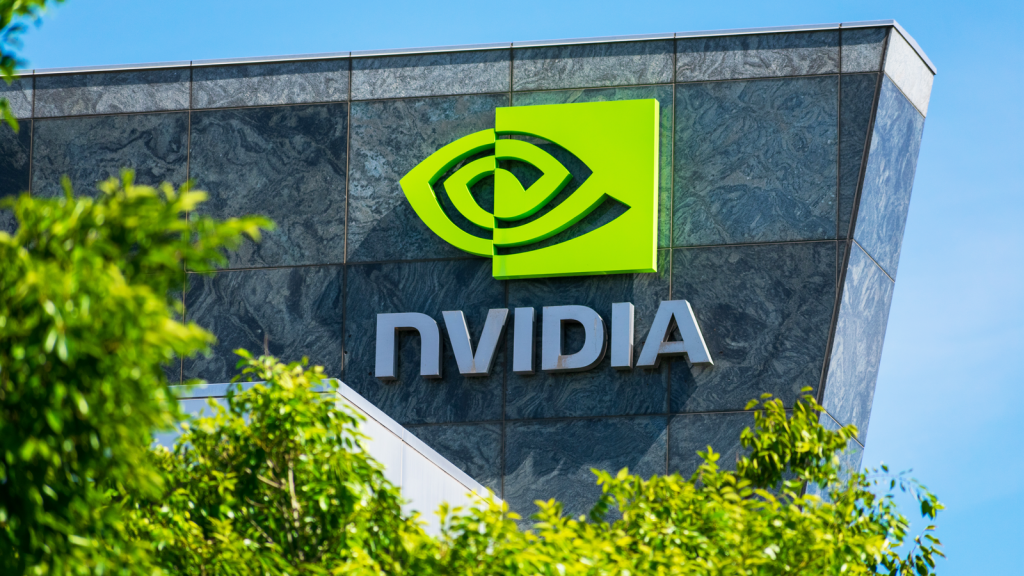Are you a founder looking to reach your target market on a small budget? Or a startup marketer pouring resources into campaigns that don’t deliver?
42% of companies use digital marketing even without a strategy. If you are a part of this percentage, you need a focused plan.
Without clear marketing strategies for startups, efforts scatter, and budgets evaporate. Targeted traditional and digital marketing strategies can drive leads and growth on a budget.
In this guide, we’ll explore some of the best marketing approaches for new businesses. We’ll show you how to craft step-by-step marketing strategies for startups and discover how supports you in this.
How to Build Winning Marketing Strategies for Startups
⭐ Featured Template
The Strategic Marketing Plan Template in helps you map out your entire marketing strategy—from goals and target audience to key campaigns and performance metrics.
With built-in tasks, timelines, and customizable views, it’s perfect for aligning your team and executing marketing plans with clarity and speed.
Why Marketing Matters for Startups
Marketing initiatives are essential for startups to gain visibility, drive growth, and guide strategic decisions. Let’s take a closer look at how marketing can make a difference.
- Building brand awareness and recognition: Developing a strong brand visibility and image to help startups effectively communicate their unique value proposition in a crowded market
- Connecting with the target audience: Identifying and executing the right marketing communication strategy to reach ideal customers and drive meaningful engagement
- Driving sales and revenue growth: Increasing awareness of the company and its products to generate more sales and higher revenue, and optimizing messaging and offerings to increase conversions
- Attracting investors: Communicating vision, validating market fit, and drawing potential investors through strategic marketing
- Establishing credibility and trust: Showcasing expertise, highlighting achievements, and building trust with customers and stakeholders
- Understanding the market: Researching to assess demand, identify competitors, and gather actionable feedback about customer preferences to improve the product or service further
- Building a loyal customer base: Fostering loyalty through consistent marketing efforts that lead to repeat business and referrals
Top Marketing Strategies for Startups
Here are some core tactics that every early-stage company must master to attract customers, drive growth, and outpace competitors.
1. Productize your signature service
Productizing your highest-value service simplifies positioning and enables repeatable processes. Clients know exactly what they’re getting and at what price, reducing negotiation overhead and accelerating sales cycles.
It turns bespoke work into a scalable offer, decoupling revenue growth from billable hours. This approach can increase client lifetime value by 20–40% through clear renewals, with cross-sell and upsell paths.
Crucially, it provides predictable cash flow, allowing you to invest confidently in demand-generation tactics like Google ads or search engine optimization (SEO). For a step-by-step framework, see our product marketing strategy guide, which walks through defining scope, packaging, and go-to-market workflows.
📌 Example
DesignJoy’s founder, Brett Williams, launched ‘Unlimited Design’ in 2017, offering unlimited graphic design requests for a flat monthly fee.
Starting with minimal costs, he acquired the first 100 customers via Twitter and Dribbble Outreach, fine-tuned his onboarding process in a shared Trello board, and scaled to $145K in MRR (≈$1.7M ARR) by June 2024—all with no external funding.
This productized service clearly defines scope, pricing, and outcomes, making the buying decision frictionless.


2. Build a unified marketing plan and playbook
A well-structured marketing plan ensures cross-functional alignment on goals, budgets, and timelines, eliminating silos between sales, product, and support. Embedding a marketing playbook into your process means that every campaign, channel, and persona has clear ownership, checklists, and performance criteria.
When your team can reference a single source of truth for priorities and tactics, it prevents duplicated efforts. Also, it clarifies dependencies and accelerates decision-making, which is critical for high-velocity, competitive markets.
🧠 Fun Fact: 66% of social media marketers say that funny content works best for their brand, followed by relatable (63%) and trending (59%) posts.
3. Build authority with content marketing
Content marketing is one of the most cost-effective ways for startups to build trust, attract an audience, and establish authority. Instead of pushing sales messages, create content that solves real problems, answers questions, or inspires your target audience.
Blog posts, videos, newsletters, podcasts, and even social media threads can showcase thought leadership while subtly educating potential customers about the product. Over time, this content becomes valuable—generating organic traffic, supporting SEO efforts, and nurturing leads long before a sales conversation begins.
Unlike paid advertising, which stops the moment you stop spending, content has a compounding return. Consistent content output helps startups become recognized experts in their domain, building brand equity and trust without a massive marketing budget.
This approach also supports other strategies like SEO, lead generation, and email marketing, making it a foundational growth lever for lean teams.
📌 Example
A standout case is how Drift, a conversational marketing platform, built its brand. Instead of traditional marketing, Drift focused on creating a new category of marketing, publishing content that challenged the status quo. They popularized the term “conversational marketing” through books, a popular blog, and a podcast, positioning themselves as the definitive experts.
By creating and owning the conversation around this new approach, they educated the market and made their product the essential solution for anyone wanting to adopt this new, more effective strategy. This approach built immense authority and a multi-million dollar brand that Salesloft eventually acquired.
4. Leverage AI in digital marketing
Automating personalization at scale frees up creative bandwidth. AI-powered experiments continuously optimize copy, timing, and segmentation, delivering incremental lifts of 20–30% in key channels like email, SMS, and push notifications.
This accelerates test velocity from weekly to hourly, driving faster insights and compounding ROI. The time savings also enable reallocation to strategic initiatives—new channel expansion or high-touch programs—maximizing the impact of limited marketing resources.
📌 Example
Netflix is a global leader in streaming, but its success also reflects how well it uses AI in digital marketing. Few realize just how much Netflix relies on machine learning to improve user experience and keep people watching.
By analyzing users’ likes, Netflix recommends shows tailored to their personal viewing habits and preferences. This AI-driven approach engages users and helps Netflix stand out in a crowded streaming market.
Today, over 80% of all Netflix viewing comes from its AI-powered recommendation system. That’s a clear sign that innovative use of AI in digital marketing builds loyalty and drives real results. Startups can tap into the same potential by using AI tools to personalize user experiences, optimize campaigns, and convert data into actionable growth insights.
📮 Insight: 88% of our survey respondents use AI tools for personal tasks every day, and 55% use them several times a day.
What about AI at work? With a centralized AI powering all aspects of your project management, knowledge management, and collaboration, you can save up to 3+ hours each week, which you’d otherwise spend searching for information, just like 60.2% of users!
5. Spin up your growth loop with referral tactics
Referral loops are a cornerstone of growth marketing strategies, delivering the highest ROI of any channel—often 3–5X organic paid ROI—because they leverage satisfied users as advocates.
Integrating referral tracking into your onboarding and product UX ensures minimal friction and maximizes adoption and engagement.
📌 Example
Dropbox has a referral program that offers users up to 1GB of free storage per referral. The referred friend also receives bonus storage—creating a double-sided incentive that motivated both sides to participate. This design has helped build a viral loop for Dropbox over the years: as more users joined, they’d refer others who’d do the same, exponentially growing the user base.


6. Host micro-events as part of your field marketing strategy
A targeted field marketing strategy builds trust and brand stickiness with high-value accounts in ways digital channels can’t. These micro-events create memorable moments and surface deeper pain points through intimate dialogues that can then be amplified on social media platforms.
They also generate rich qualitative insights for messaging and product development that can help your message stand out in crowded inboxes. When synced with CRM and marketing automation, they become repeatable accelerators for pipeline velocity.
📌 Example
Bloomreach runs exclusive one-to-few account-based marketing (ABM) events—whiskey tastings and cookie-decorating workshops—for target accounts, using Goldcast to manage invites and follow-ups. The many attendees booking sales meetings afterward indicate that these curated experiences strengthen relationships and advance pipeline velocity.
7. Increase conversion rates with strategic A/B testing
Strategic A/B testing helps businesses discover what messaging or design works best. By testing small changes, brands can boost conversions without guessing. It’s a simple way to learn what drives users to take action and improve results fast.
📌 Example


Going used A/B testing to compare two sign-up messages on their landing page. The version promoting the free premium trial led to a 104% increase in conversions. This simple test helped the company boost sign-ups and revenue. It’s a clear win for Going and a clever use of easy A/B testing.
💡 Pro Tip: Marketing campaign templates codify best practices, such as naming conventions, budget pacing, and targeting criteria, so new campaigns spin up in minutes, not days. Use set templates to compare channel performance and pivot accordingly.
8. Launch micro-campaigns for rapid market validation
Launching micro-campaigns is a smart way to test your idea without spending much. Instead of guessing what works, you run a small, targeted campaign to see how real people respond. If it clicks, you scale.
If not, you adjust fast. One well-timed video campaign did precisely this and sparked a brand that later sold for over a billion dollars.
📌 Example
Dollar Shave Club first tested humor and value angles with tiny Facebook ads before filming its launch as a DIY video. CEO Michael Dubin spent $4,500 shooting the 90-second spot in one day. Within 48 hours, the site had 12,000 orders, crashing under traffic. The viral proof attracted funding and ultimately a $1 billion Unilever acquisition four years later.
9. Design an enterprise-ready marketing stack early
Building a marketing productivity metrics framework tied to marketing KPIs ensures you connect activities to business outcomes instead of vanity metrics.
An early investment in marketing software helps build a structure for your marketing execution and improves team productivity.
serves as the central nervous system for marketing teams by connecting planning, creation, tracking, and collaboration in one platform.
💡Pro Tip: for Startups helps small and scaling teams automate workflows, manage campaigns, and track search engine rankings and real-time performance to fuel sustainable growth.


10. Execute account-based marketing for strategic early customers
Focus an early-stage marketing plan on 10-20 accounts that would prove product-market fit. Treat each target like a market of one. ABM concentrates the limited budget where the win probability and contract value are highest. Early logos then fuel social proof and pricing power.
📌 Example
Snowflake adopted a targeted ABM strategy for their outbound marketing efforts, beginning with 2,500 named enterprises. Using data enrichment, they enhanced their account coverage while also improving lead-to-opportunity conversions.
Snowflake’s internal AI model then prioritized “high-propensity” accounts. It delivered a 2.3X lift in booked meetings while spending 38% less on ads. Tactics ranged from custom landing pages to executive dinners, making prospects feel like partners and helping pave Snowflake’s record-setting software IPO.
🧠 Fun Fact: 90% of social media marketers believe that social apps will be the primary point of purchase in the near future, outranking websites and third-party platforms.
11. Leverage partnerships and collaborative marketing
Teaming up with brands that complement your own is a powerful way for startups to reach new audiences without a massive ad budget.
Successful partnerships through joint webinars, co-branded content, organic social media marketing, or bundled deals hinge on genuine alignment of values and voice. When you find the right fit, you both lend credibility to each other.
These collaborations provide startups with network access and trust, while established partners gain innovation and user-generated content.
📌 Example
A standout example of this approach in action is the Uber–Spotify partnership. This collaboration allowed Uber riders to personalize their cab rides by streaming their own Spotify playlists during trips.
For Uber, it enhanced the rider experience and set it apart in a competitive ride‑hailing market. For Spotify, the integration exposed its platform to new audiences—many of whom may not have been active users previously.
How Supports Startup Marketing Efforts
, the everything app for work, unifies planning, execution, and measurement—transforming disparate tools into a single, powerful workspace.
for Marketing Teams empowers founders and early-stage marketers to drive rapid, data-backed growth. Plan efficient campaign workflows, automate repetitive tasks, and gain real-time insights to overcome common startup hurdles.
Plan, execute, and track campaigns in one place


’s hierarchy of Spaces, Folders, and Lists gives startup marketers a transparent view of every campaign while aligning cross-functional efforts.
- Turn marketing plans into actionable Tasks and track budgets, priorities, and due dates with Custom Fields
- Meet your deadlines for blog schedules, email sequences, and ad launches with Gantt charts, task dependencies, and the Calendar View
- Automate repetitive work—update statuses, send notifications, and assign tasks with Automations
Stay on target with clear goals and dashboards
With , teams can set and monitor KPIs and make data-driven decisions without bouncing between tools.


- Turn big ideas into actionable, trackable targets with Goals and break them down into tasks, deadlines, and metrics
- Keep teams aligned and accountable as you scale with the help of actionable Milestones
- Track campaign performance, lead generation, and team workload in customizable Dashboards
- Spot bottlenecks early, course-correct, and optimize campaigns based on real data—not guesswork
Collaborate effectively across teams


Marketers can use ’s team collaboration features to boost creativity, alignment, and execution speed.
- Brainstorm campaign strategies, customer journeys, or content calendars visually with drag-and-drop ease in Whiteboards
- Keep everybody on the same page by discussing campaign ideas, sharing quick updates, or clarifying tasks using threaded conversations in Chat
- Collaborate seamlessly by bringing freelancers, agencies, or clients into specific chats and task lists
- Centralize all marketing assets—blog drafts, campaign briefs, brand guidelines, and SOPs—in one easily accessible place with shareable, collaborative Docs
Accelerate execution timelines using AI tools
Brain brings AI directly into your workflow—automate tasks, draft content, analyze marketing data for insights, and make smarter decisions without ever leaving your workspace.
- Reduce production time by generating blog outlines and emails with the AI Writer
- Prioritize daily work, set reminders, and boost productivity with AI suggestions and automation
- Answer team questions about processes, tools, or previous results using workspace knowledge and AI Agents
- Get quick summaries of campaign performance or project progress and pull insights from multiple sources (tasks, docs, chats) for marketing reports
- Summarize meeting notes and turn them into actionable tasks with the AI Notetaker


👀 Did You Know? A survey at Cannes Lions showed that 71% of CMOs plan to invest over $10 million annually in AI—up from 57% the prior year.
Automate routine tasks and monitor results with templates
The Strategic Marketing Plan Template consolidates your objectives, budget, and channel roadmap into a single plan. It keeps every stakeholder aligned on goals and timelines.
Use this template to:
- Define and track quarterly and annual marketing objectives and success metrics
- Map target audiences and unique value propositions
- Allocate budgets across digital and offline channels
- Assign owners and deadlines for each initiative
The Marketing Campaign Management Template keeps every campaign asset, task, and approval workflow in one place. It eliminates bottlenecks and ensures consistent brand messaging.
Use this template to:
- Plan and track multi-channel campaign schedules and milestones
- Track asset creation, reviews, and sign-offs
- Manage ad spend, bid strategies, and budget allocations
- Automate status updates and stakeholder notifications
Common Startup Marketing Challenges and How to Overcome Them
Startups often hit roadblocks when marketing on tight budgets and limited time. Here are six key challenges new businesses face and solutions to overcome them:
Startup marketing on a limited budget
Tight marketing budgets make scaling ad programs difficult. However, plenty of marketing strategies are available to bootstrapped startups, too.
Way forward:
- Focus on cost-effective channels, such as organic social media, referral programs, and strategic partnerships
- Repurpose blog content into email and community posts
- Utilize free tools and A/B tests to identify which tactics generate the most leads before scaling your spend
- Start with small experiments in one or two channels to prove the concept
Low brand awareness
Without visibility, potential customers won’t find you. Craft a clear product marketing strategy that sharpens your value proposition and messaging.
Way forward:
- Coordinate PR outreach and co-marketing initiatives to increase your reach
- Maintain consistent branding—logos, tone, visuals—across digital ads, social channels, and offline events to build recognition and trust
- Highlight customer success stories to reinforce credibility and establish trust
Resource constraints and time management
Small teams juggle core duties and marketing tasks. Putting systems and processes in place can help you overcome this challenge.
Way forward:
- Track marketing productivity metrics, such as content throughput and campaign cycle time
- Streamline workflows by delegating tasks and using automations for email follow-ups and social scheduling, so your team is free to focus on strategy and creative execution
- Monitor campaign handoffs to prevent duplication and maintain tight timelines
💡Pro Tip: ’s AI tools can help streamline production workflows. This quick video tells you how!
Difficulty measuring ROI
Without clear marketing KPIs, campaigns drift.
Way forward:
- Define metrics such as cost per acquisition, conversion rates, and customer lifetime value
- Consolidate performance data into dashboards for real-time insights
- Regularly review these figures to identify underperforming campaigns and reallocate budget to high-ROI channels
Target audience identification
Poor targeting wastes resources and messaging. To resonate with your prospects, you must be speaking their language.
Way forward:
- Conduct market research via surveys, interviews, and analytics to understand pain points and behaviors
- Create detailed buyer personas that include demographics and purchase triggers
- Tailor content and select channels that resonate with each persona to improve engagement and conversions
- Revisit personas quarterly to reflect market shifts and refine targeting
Maintaining content consistency
Inconsistent publishing can harm audience interest and negatively impact SEO rankings.
Way forward:
- Set brand guidelines for a consistent voice, style, and visuals across all touchpoints
- Develop an editorial calendar to schedule blogs, social media posts, and email campaigns several weeks in advance
- Automate content approvals and publishing to ensure your team delivers high-quality content on time and steadily grows your audience
Empower Startup Marketing Efforts With
A winning marketing strategy equips your startup with the focus to reach the right audience, the agility to test and iterate, and the insights to optimize every campaign.
Marketing strategy development for early-stage startups involves a careful balance of long- and short-term actions. From crafting compelling value propositions for new customers to optimizing social media marketing channels, each tactic in this guide drives cost-effective growth.
Use to centralize your strategic marketing plan, seamlessly manage multi-channel campaigns, and track critical KPIs. Leverage templates, automated workflows, and Brain to save time, share transparent goals to align teams, and measure success in real time.
Sign up for today!


Everything you need to stay organized and get work done.















